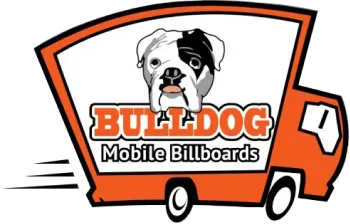In contrast to traditional or online marketing tactics, experiential marketing is a quick and effective method for raising brand awareness through close connections with customers. It engages all five senses and arouses emotions that produce everlasting memories that promote brand loyalty.
Through experiential marketing, you may build a genuine and personal relationship with your audience and perhaps boost brand awareness and customer loyalty.
What is Experiential Marketing?
Experiential marketing involves giving potential clients or consumers first-hand experiences to promote awareness, foster comprehension, or boost sales of goods or services.

These encounters can take the form of offline activities like live performances, trade exhibitions, demo days, etc., or online webinars and conferences. Experiential marketing prospects have multiplied thanks to Virtual Reality and Augmented Reality.
Myths regarding Experiential Marketing
Here are some myths regarding experiential marketing.
Myth: Experiential Marketing Works for Specialist Sectors
Finding a means to engage customers is the goal of experiential marketing, which is reliant on the quality of the event. Even if some items are more ideally suited for experiential marketing, this strategy is only as creative as those who use it.
Understanding the appropriate setting is also crucial. For instance, passing out fliers on the high street would not be advantageous for a promotional event staffing company. But at a trade fair, a lively booth or mobile billboard advertisement is a much better concept and more likely to bring business.
Myth: Experiential Marketing is Strategic
Strategic marketing companies spend hefty amounts of money on marginally valuable activities and expenditures. However, marketing is a tactical activity designed to facilitate the company’s (particularly the sales team’s) ability to generate a profit.
Every marketing measurement must be quantitative and linked to the marketing team’s specific initiatives. For instance, marketing must incorporate a method to gauge the response regarding profitable revenue if it advertises.
Myth: Small Businesses Don’t Need Experiential Marketing
If you own a tiny local business that relies on repeat business, it’s understandable why you might think you don’t need marketing.
However, small firms stand to benefit the most from marketing. Whatever your company’s objectives and the size of your operation, marketing can help you build and maintain a loyal consumer base.
You can only get so far through word of mouth and foot traffic. Additionally, there is always a chance that new competitors will steal your customers. However, a company of any size may reach new consumers and retain current ones with a strong marketing strategy.
Myth: Experiential Campaigns do not reach Huge Audiences
We cannot continue to consider various marketing channels as distinct entities in the twenty-first century. A comprehensive strategy is required, incorporating all inputs to fulfil objectives connected to elevating the brand. The most exciting material is shared the most, as we all know. As a result, you establish a source for interesting material that will continue to exist long after the physical campaign has ended.
Myth: You do not need to Market Good Products
One of the most widespread myths about marketing is this one. But let me ask you this: What good is the best product in the world if no one knows about it?
Furthermore, given the amount of competition, there will inevitably be rivals that can provide goods at a similar price. No matter how excellent your goods or services are, marketing is essential if you want to spread the word about them and stand out from the crowd. Glass wall display trucks will be one of the best methods to promote brands.
The article has highlighted some misconceptions regarding experiential marketing. If you, too, believed in them, no worries! BullDogBillBoard is here to help you advertise your products and services in the best possible manner.



